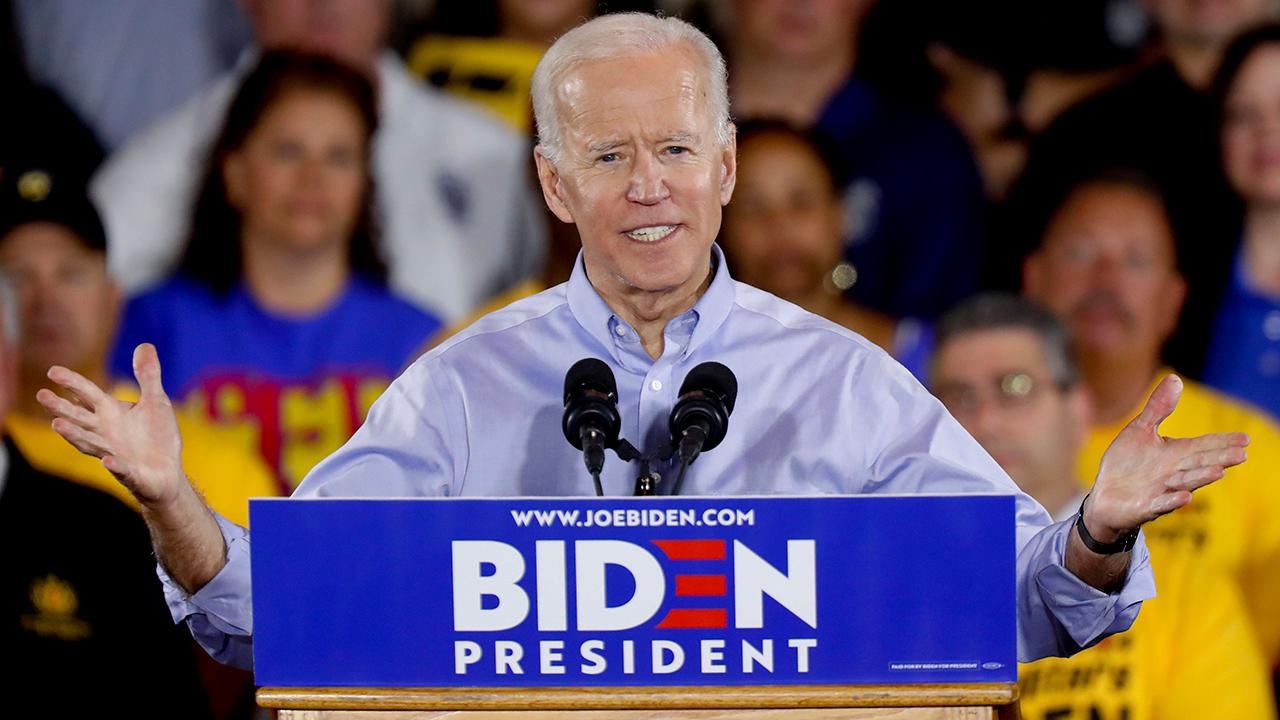First 2020 Democratic presidential primary debate starts Wednesday: Everything you need to know
For millions of Americans, the race to 2020 officially kicks off on Wednesday with the first Democratic presidential debate of this election cycle as they meet the dozens of contenders hoping to replace Donald Trump as president.
Because it’s such a crowded field -- there are 23 major Democratic candidates, the largest Democratic primary field in the modern era -- the debates are being split into two nights at the Adrienne Arsht Center for the Performing Arts in Miami from 9 p.m. to 11 p.m. ET both nights.
On Wednesday, the debaters will include a cast of 10 people, ranging from well-known senators and Congress members to political neophytes.
The Democratic National Committee and NBC tried to evenly spread the top-tier candidates between the nights. On Wednesday, Sen. Elizabeth Warren, D-Mass., is the frontrunner having steadily made a series of gains since launching her campaign; in a series of recent polls two weeks ago, Warren leapfrogged Sen. Bernie Sanders, I-Vt., her chief progressive rival (Sanders, along with former Vice President Joe Biden, will be debating on Thursday night).
Who all will be involved in the Wednesday night debate?
Sen. Elizabeth Warren, D-Mass.
Sen. Cory Booker, D-N.J.
Former Rep. Beto O’Rourke, D-Texas
Sen. Amy Klobuchar, D-Minn.
Former Secretary of Housing and Urban Development and former San Antonio Mayor Julian Castro
Former Rep. John Delaney, D-Md.
Rep. Tulsi Gabbard, D-Hawaii
Rep. Tim Ryan, D-Ohio
New York City Mayor Bill de Blasio
Washington Gov. Jay Inslee
What some of the biggest economic policies to monitor during the debate?
Be sure to watch Warren -- a known consumer advocate and watchdog, and the creator of the Consumer Financial Protection Bureau -- to hit home her tough critiques of Wall Street. In recent weeks, the Massachusetts Democrat has rolled out a series of plans, with most focused on economic reform.
To name a few, that includes: a plan to break-up big technology companies including Facebook, Amazon and Google; a bill to cancel student debt for millions by implementing an “ultra-millionaire tax”; and legislation to establish universal child care in the U.S.
Other candidates could also try to hit home economic points, however.
Booker has introduced a bill that would establish a three-year pilot program in which the Department of Labor would choose up to 15 local areas and offer that area funding so that every adult would be guaranteed a job, receiving at least $15 an hour.
The New Jersey Democrat also unveiled a proposal that was intended to alleviate the affordable housing crisis by creating tax credits for renters; zoning policies to increase the affordable housing stock and savings incentives.
Still, Booker could come under fire his close ties to Wall Street and the pharmaceutical industry. In 2017, according to the Center for Responsive Politics, he said he would put a “pause” on accepting money from the industry after he drew fire for killing a bill introduced by Sen. Bernie Sanders, I-Vt., that would have lowered drug prices.
Candidates could also be questioned about health care, an issue that’s looming large as the Trump administration attempts to dismantle the Affordable Care Act; in the run-up to 2020, a line has been drawn between more progressive Democrats who support Medicare-for-all versus those who support the continued privatization of the industry.
Warren, Booker and Castro have all endorsed some version of Medicare-for-all. Delaney, likewise, has a universal health care plan (and as a former health care financier, his plan carries a bit of weight). And as New York City mayor, de Blasio attempted to bring “universal health care” to the Big Apple.
Klobuchar -- who’s billed herself as a pragmatic moderate capable of appealing to both Democrats and Republicans -- has called Medicare-for-all an “aspiration,” but has not formally committed to overhauling private health insurance.
Likewise, O’Rourke, has shied away from endorsing a Medicare-for-all plan. He suggested it might not be the “fastest way” to achieve “guaranteed, high-quality universal health care for all,” instead proposing another piece of legislation: Medicare for America.
CLICK HERE TO GET THE FOX BUSINESS APP
That particular health care plan would provide universal coverage through a combination of private and public insurance plans.
Who’s moderating the event?
The event will be hosted by NBC News, MSNBC and Telemundo, and will be moderated by Savannah Guthrie, Lester Holt, Chuck Todd, Rachel Maddow and José Diaz-Balart.




















